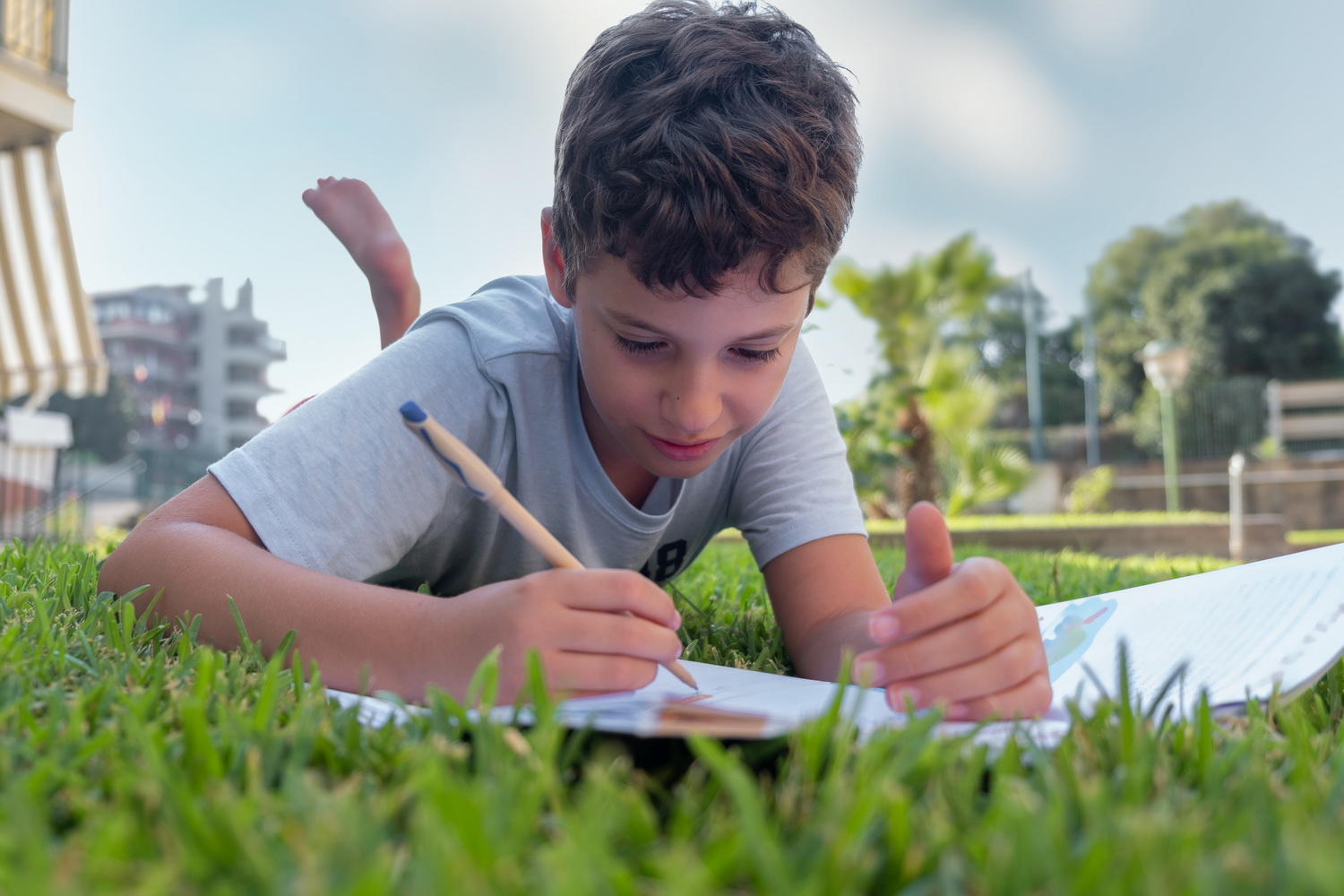Comprehension skills Reading Fiction Worksheets for Ages 7-8
7 filtered results
-
From - To
Unlock your child's potential with our Comprehension Skills Reading Fiction Worksheets for ages 7-8! Designed to enhance understanding and critical thinking, these worksheets offer engaging fictional texts that captivate young readers. Each activity encourages children to analyze characters, plot, and context, building essential skills for academic success. With a variety of exercises including multiple-choice questions, word searches, and discussion prompts, kids will enjoy exploring stories while developing their cognitive abilities. Perfect for home or classroom use, our worksheets make reading enjoyable and enriching. Foster a lifelong love of literature and strengthen comprehension skills today! Dive into our resources and watch your child's confidence soar!
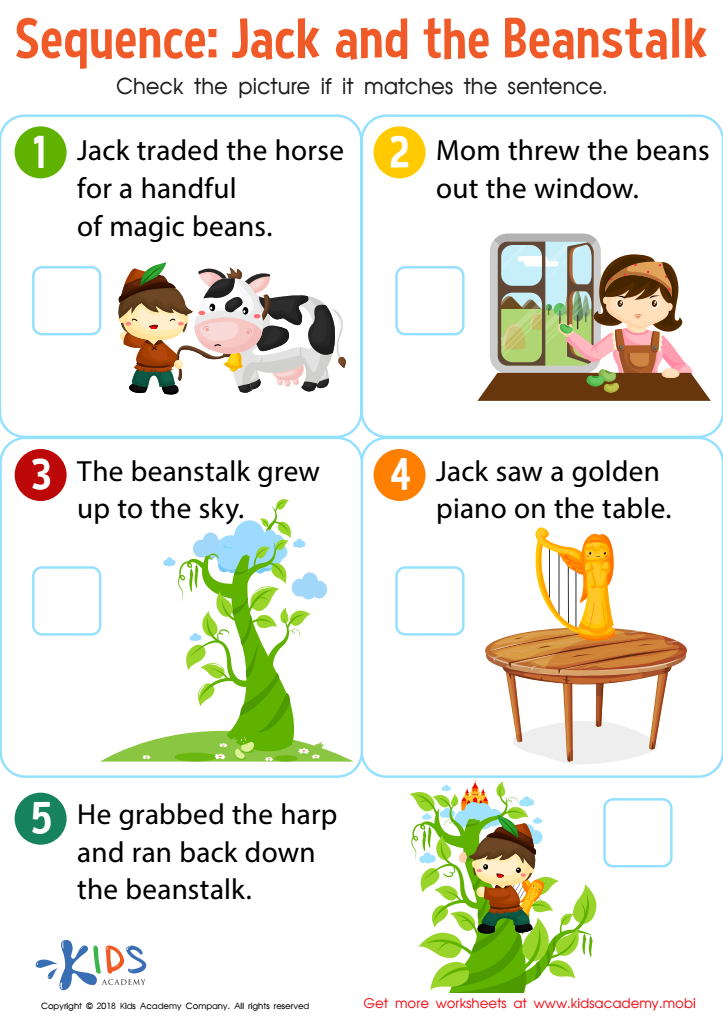

Sequence: Jack and The Beanstalk Worksheet
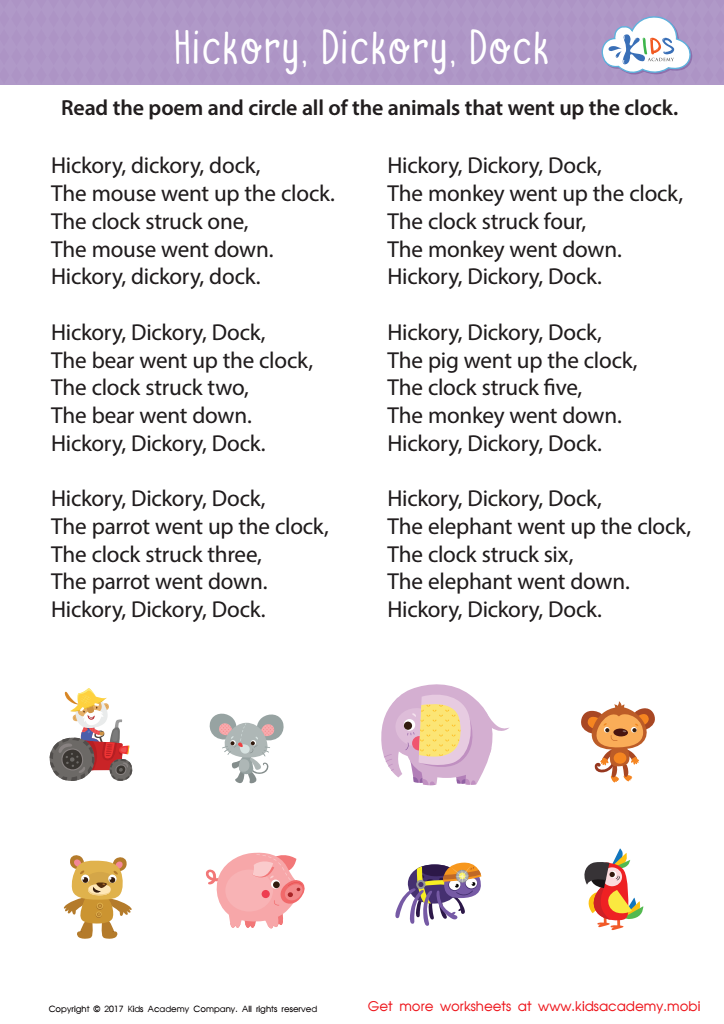

Hickory Dickory Dock Sequencing Worksheet
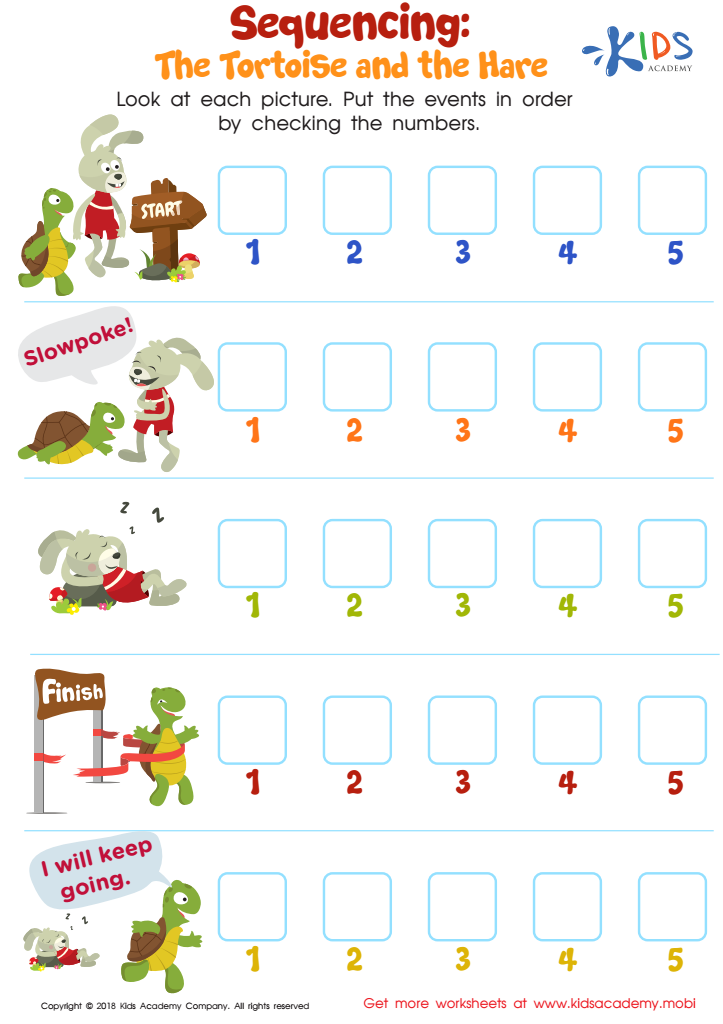

Sequencing: The Tortoise and the Hare Worksheet
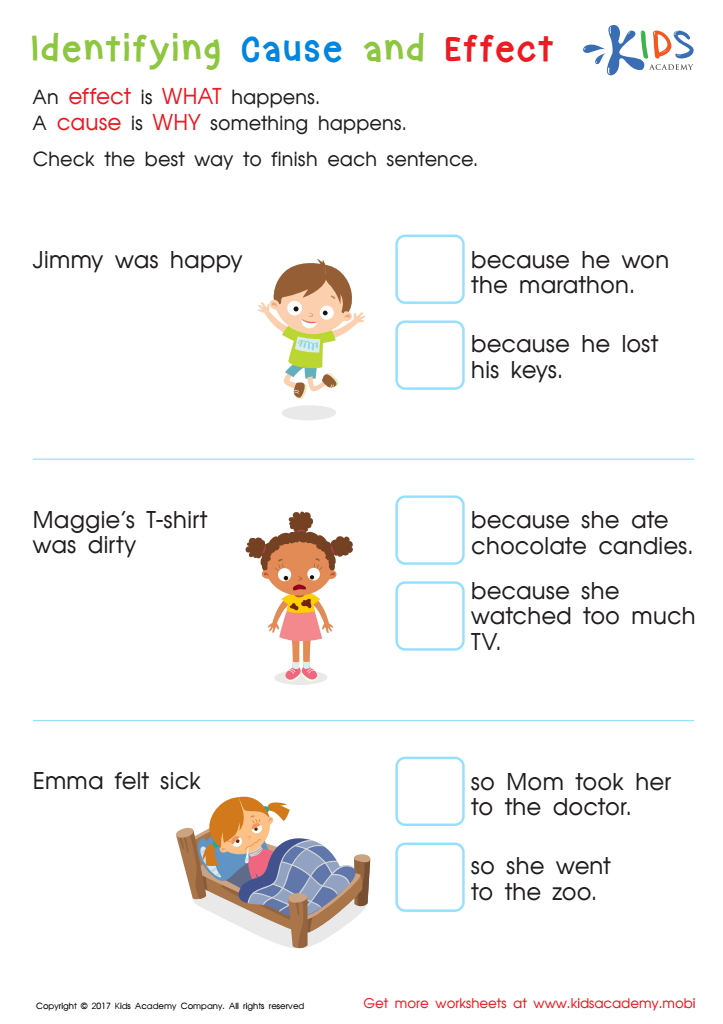

Indentifying Cause and Effect Worksheet
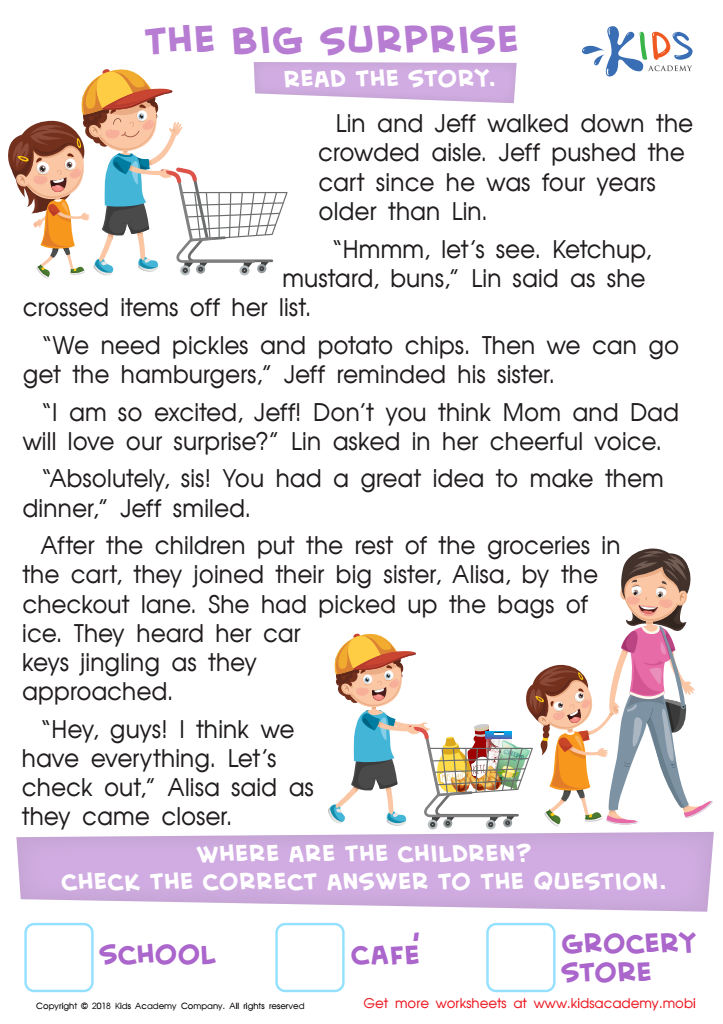

The Big Surprise Worksheet
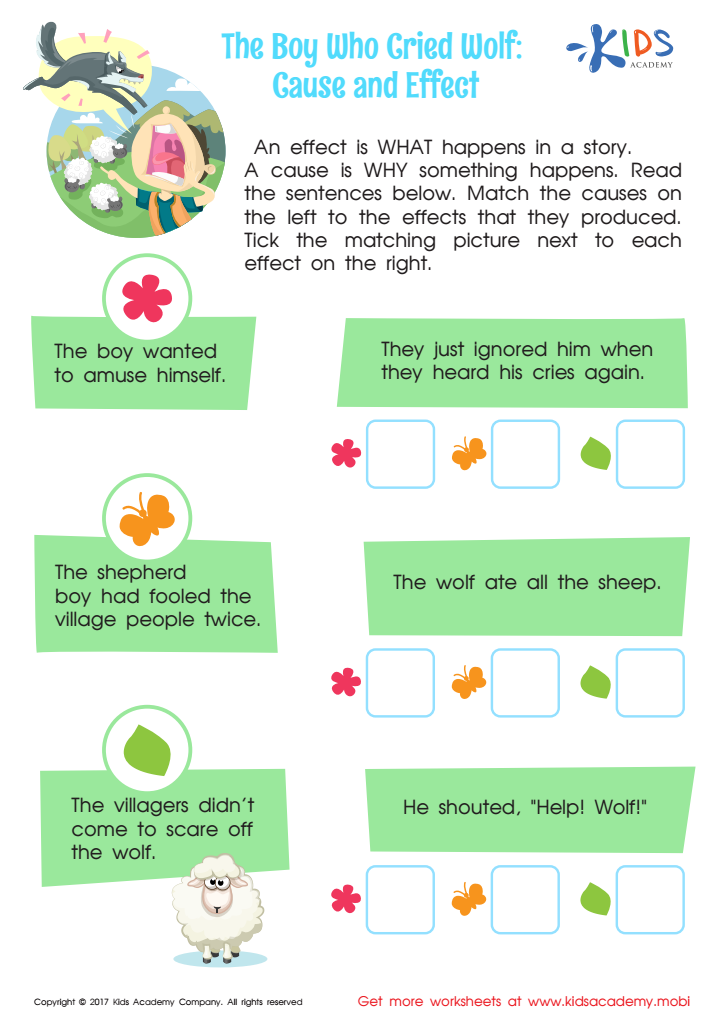

The Boy Who Cried Wolf: Cause and Effect Worksheet
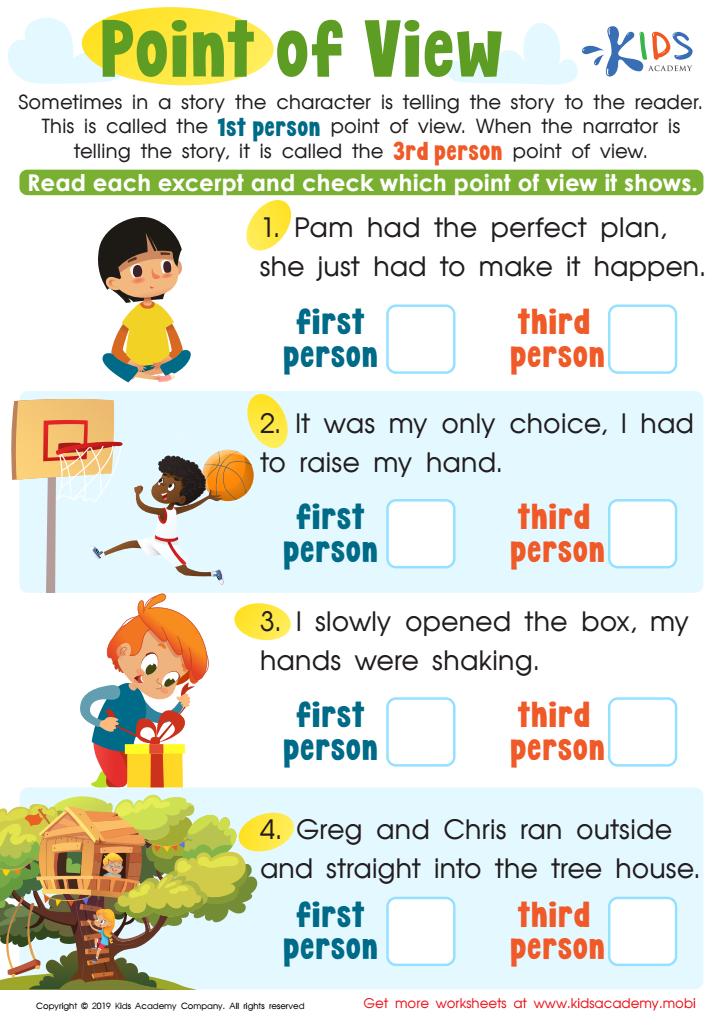

Point of View Printable
Comprehension skills in reading fiction are essential for children aged 7-8, as they lay the groundwork for academic success and foster a lifelong love of reading. At this developmental stage, children begin to engage with more complex narratives and characters, allowing them to explore emotions, themes, and plot structures. Strong comprehension skills help them analyze and interpret what they read, which enhances critical thinking and creative problem-solving abilities.
Parents and teachers should care about these skills because reading fiction not only improves literacy but also cultivates imagination and empathy. By understanding diverse perspectives through fictional characters, children develop social awareness and emotional intelligence. These skills are particularly important as they navigate relationships in their personal lives and within their communities.
Additionally, fostering comprehension skills can improve overall academic performance. A strong grasp of reading concepts aids in subjects beyond language arts, such as history and science, where narrative comprehension is often required. Parents and teachers can support comprehension development through discussions, asking open-ended questions, and encouraging children to predict outcomes or relate their own experiences to stories. Thus, investing in these skills enriches children's educational journey and personal growth.

 Assign to My Students
Assign to My Students








